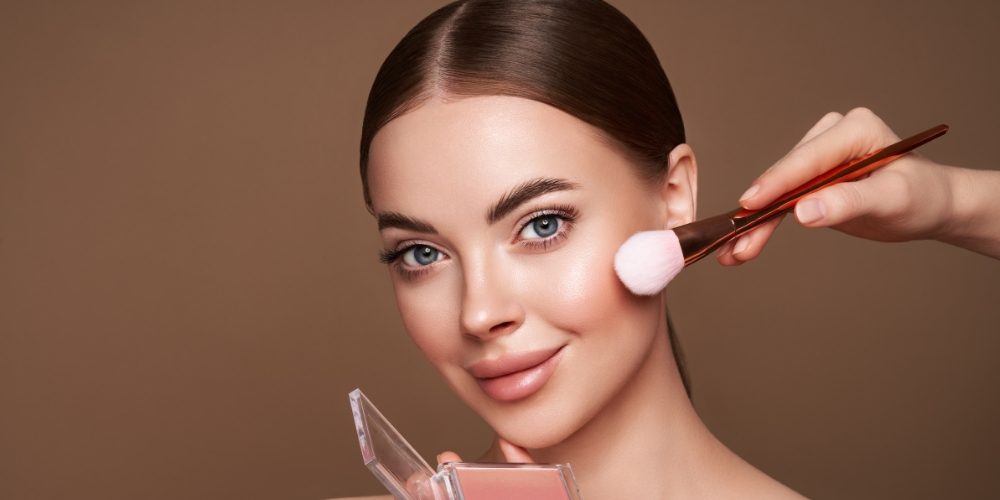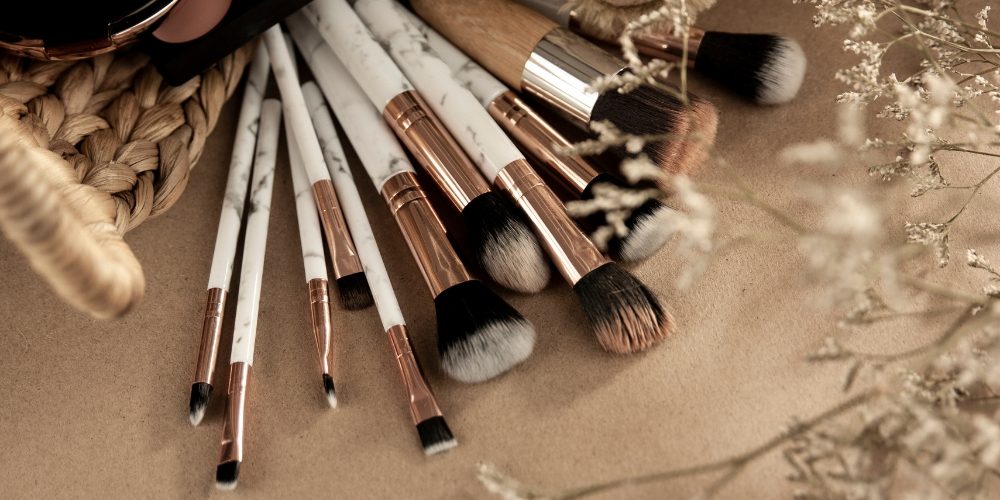The power of makeup, and its power to boost personal expression and boost beauty, is now an integral part of contemporary life. Its ability to transform, allowing people to play with the appearance, texture, and colors of styles is what has made it a coveted instrument for creativity. But, behind the enticing appearance of enhanced beauty is the need to understand the many different effects that makeup has on our skin’s health. This article explores the complex relationship between the makeup and health of your skin and reveals the subtle effects it has. Through providing a better understanding of these complexities and empowering with the knowledge to make sense of the world of makeup, while protecting the health of your skin.
In a world where appearances are paramount, makeup can be an excellent tool to emphasize beauty and convey individuality. The possibilities that it provides are endless, from dramatic changes or subtle changes. However, it’s important to realize that underneath the beauty appeal, it has the power to influence the condition and appearance of the skin. When we look into the fundamental processes, we discover the reality of blocked pores, irritations that could be a possibility, and the delicate equilibrium of the skin’s natural oils which makeup has the potential to alter. This investigation serves as an underlying basis for strategies that can be implemented to minimize the negative impacts. With a deeper knowledge of the effects of makeup on skin, along with conscious choices and mindful habits it is possible to be awed by its power and nurture the skin beneath.
Understanding Makeup’s Effects on Skin
While makeup is a wonderful instrument for improving beauty, it can also have numerous effects on skin that must be considered to ensure its health and vitality.
Clogging Pores
Certain makeup products, specifically those that contain heavy formulations such as foundations and certain primers can cause pores to clog over time. This can lead to the buildup of dirt, oil, and makeup residues, which could end up leading to blackheads, breakouts and may even worsen acne.
Skin irritation
Certain cosmetics have dyes, chemicals and perfumes that could affect the skin, specifically for those who have delicate skin. Constant usage of these products could result in itching, redness and discomfort. This makes it essential to pay attention to the ingredients and choose products that are specifically designed for skin sensitivity.
Dryness and Dehydration
Some cosmetics, specifically those containing powder, can absorb skin’s natural oils, which can lead to dehydration and dryness. This is more prevalent in those who have combined or dry skin. A proper moisturizing routine prior to makeup and selecting moisturizers for makeup can help reduce the effects.
Allergic Reactions
Cosmetics that contain allergens or irritating ingredients could cause allergic reactions in vulnerable people. The symptoms can range from mild redness to extreme swelling, itching, or even itching and hives. Testing new products with patch tests and being aware of possible allergens is crucial to avoid the occurrence of these reactions.
Premature Aging
Heavy makeup products or cosmetics that contain harsh chemicals may accelerate the process of aging. They can cause degeneration in collagen and elastin fibers, which leads to development of wrinkles and fine lines over time. Choosing makeup that is skin-friendly ingredients and ensuring that you follow the correct routine for your skincare routine can reduce this result.
Knowing the potential consequences of makeup for the skin allows individuals to make informed decisions and develop regimens of skincare that cater to their specific requirements. The right balance between makeup and routines for skincare is essential to maintaining radiant and healthy skin.
Understanding Makeup Ingredients
Knowing the ingredients in makeup products is vital to make informed decisions regarding the products you put on your skin. Here are five important things to think about in understanding the ingredients in makeup:
Ingredient Labels
Make the time to read and understand the ingredient labels on cosmetics. Ingredients are typically listed in the number of concentrations. Knowing the most commonly used ingredients and their possible effects will help you make educated choices about the ingredients you should add to your cosmetics routine.
Know Your Skin Type
Certain ingredients work differently for different skin types. If you’re sensitive or have acne-prone skin, for instance it is recommended to stay clear of products that could cause irritation, such as scents or preservatives. Knowing the type of skin you have will help you to select products for your makeup that are less likely to trigger allergic reactions.
Common Irritants
Be aware of the common irritating ingredients that are commonly present in products for makeup. This includes parabens and sulfates as well as synthetic fragrances and dyes. If you have sensitive skin, using hypoallergenic and fragrance-free products can help reduce the chance of irritation.
Beneficial Ingredients
Find products for makeup which contain ingredients that benefit your skin. Examples include antioxidants, such as Vitamins C and E and hyaluronic acid to provide moisture as well as mineral-based sunscreens for UV protection. These ingredients can be beneficial to the health of your skin when you wear makeup.
Research and Education
Put in the time researching specific ingredients in your makeup to learn about their functions and possible impacts. Dermatologist recommendations, online resources and trusted beauty magazines are able to provide useful information on the advantages and drawbacks of different ingredients.
If you are aware of the makeup ingredients, you can make informed choices that are in line with your skin’s requirements and desires. Be aware that each skin is different, and what works for one individual will not work for someone else. Being able to discern the ingredients and their meanings allows you to create your own makeup collection that improves your appearance but also improves the health of your skin.
Preparation and Maintenance
A properly-prepared canvas is crucial to reduce the effect of makeup on your skin:
Thorough Cleansing
Make sure to thoroughly cleanse your skin prior to applying makeup. This method eliminates any remaining oil and dirt and lays the foundation for a more smooth makeup application and keeping pore irritation at bay.
Primer Usage
Before applying your makeup apply primer. Primers work as an insulator between the skin and makeup, which reduces the direct contact and minimizes possible skin irritations. In addition, they can improve the life that your make-up lasts.
Regular Makeup Brushes Cleaning
Cleaning your cosmetic brushes regularly and sponges is essential. This will prevent the buildup of makeup-related bacteria and traces which contributes not just to the health of your skin but as well to the effectiveness of the application.
Application Tips
The art of mastering makeup application and ensuring the health of your skin requires an approach that is balanced:
Less is More
Be mindful of the principle of restraint while applying makeup. The overloading of your skin with many layers of cosmetics can overwhelm it, resulting in a clogged as well as blocked pores.
Avoid Layering
Instead of covering your face with numerous layers of makeup, concentrate on highlighting your face with the right products. This method lets your skin breathe and reduces the risk of developing skin issues.
Patch Testing
Always conduct a patch test prior to applying any new makeup all over your face. This test is crucial for those who have sensitive skin or a history of allergic reactions.
Skincare Routine
A complete routine for your skincare routine is seamlessly integrated with makeup application
Pre-Makeup Skincare
Include an exfoliating routine prior to applying makeup. A well-hydrated skin is an easier surface to apply it. It also prevents dryness from makeup.
Nighttime Skincare
Do not skip carefully removing your makeup prior to getting ready to go to bed. Then, follow it up with a routine for your nighttime skin care routine to let your skin re-energize as you sleep.
Makeup-Free Days
Abstinence from applying makeup can have a positive effect on your skin’s health:
Let Skin Breathe
Set aside certain days to go makeup-free. Give your skin a chance to breathe and heal from the possible negative effects of it. Over time this routine can help to improve your complexion.
Hydration and Nutrition
It is important to remember that skincare goes beyond just external care. Keep yourself hydrated and eat healthy diets that are with a high content of vital vitamins and minerals to improve overall skin health.
Consulting Professionals
If in doubt, speaking with experts can help you make the right decisions to skincare and makeup:
Dermatologist Advice
People with skin issues or issues should seek advice from a dermatologist prior to adding new products. Dermatologists can provide personalized advice in accordance with your skin’s specific needs.
Makeup Trials
For advice specific to your skin type and desired appearance, you should consult makeup experts. Their experience can assist you in achieving your beauty goals without risking the health of your skin.
The harmonious relationship between skin health and makeup highlights the need for having a well-balanced and informed approach. This dynamic relationship requires an understanding of how it affects the skin both in a positive and negative way. When you understand the possible consequences that it has such as pore-clogging and skin irritation as well as its impact on enhancing beauty – one is able to navigate this complicated world with a sense of purpose and mindfulness. With this understanding it is possible to harness the transformational power, while protecting the beauty of the skin underneath.
Implementing the practical strategies discussed in this article will help people to find a balance between their skin’s appearance. The information provided provides the guidelines for creating an effective beauty routine that doesn’t just improve the appearance of one’s exterior, but also improves skin’s elasticity and glow. It’s a reminder just like each stroke of a brush creates an artistic work, each choice that we make in our area of skincare contributes to the health of the surface of our skin. So, the desire for an attractive complexion isn’t an exclusive pursuit from the dedication and devotion put in the makeup routine as they are both intricately connected to the whole-body self-care.
Thank you for joining us on this journey through Snap Blog, where stories come to life. We hope you enjoyed delving into the rich tapestry of human experiences, discovering moments that inspire, provoke thought, and foster connection. As you continue your exploration of our platform, we invite you to engage with us, share your insights, and be part of our vibrant storytelling community. Together, let’s unlock more moments and reveal the extraordinary stories that make life truly remarkable. Happy reading, and see you on the next adventure!


